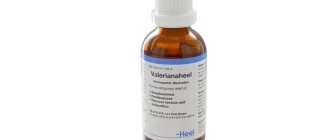What needs to be done to ensure that the baby has enough milk? How to improve lactation? These questions concern many mothers. Over the past decade, attitudes towards breastfeeding have changed significantly in our country. Most mothers began to strive to feed their babies on their own. Formula milk is no longer considered an adequate and convenient replacement for breast milk.
From the WHO point of view, it is absolutely necessary for a child to be fed breast milk for at least 6 months and very desirable for up to 2 years. But sometimes mothers lose it already 2-3 months after birth, despite the desire to feed. And this usually leads to all sorts of mistakes when establishing the breastfeeding process, a nervous situation in the family, and lack of support from relatives.
Only about 3-4% of women are actually unable to feed their baby with breast milk alone. But even most of them can, if desired, provide at least mixed feeding. This article will talk about various medicinal and folk remedies for increasing milk production. But, first of all, we need to remind you of the basic rules of breastfeeding, the violation of which leads to a decrease in the amount of milk.
Principles of medicinal increase in lactation
Taking medications to normalize lactation requires increased responsibility. The production of breast milk always follows clear rules that must be taken into account for successful feeding of a newborn baby. In this regard, it is extremely important to take care of the correct use of drugs and take into account the principles of drug therapy.
Increased lactation is possible, regardless of genetics. Previously, women used folk remedies, herbal teas, but now modern drugs are becoming more and more popular. By choosing special medications, you can solve the issue of adequately feeding your baby without unnecessary risks.
Breastfeeding helps improve the baby's immunity. For this reason, lactation should be carried out correctly and fully, trying to transfer as many nutritional components as possible to the baby.
Basic rules for feeding infants
For successful lactation, you should pay special attention to the most important principles:
- The baby needs to be taught to latch onto the breast correctly. Otherwise, feeding the baby will be an uncomfortable and undesirable process. Moreover, improper latching of the mammary glands can be dangerous not only for the baby, but also for his mother. As a result, there is a serious risk of cracks and abrasions on the nipples, which will lead to pronounced pain;
- One of the most important aspects is organizing the right regime. Pediatricians do not recommend feeding your baby only by the hour. The regimen should be based on taking into account the baby’s natural needs, so he should eat when he has an appetite. In addition, a regimen based on physiological needs will eliminate the need for additional feeding for the baby;
- At night and early in the morning, it is advisable to put the baby to the breast. This physiological habit will help increase lactation. After this, taking medications will be useful only taking into account the increase in the amount of breast milk produced, because lactation will already be established;
- While your mother's milk supply is increasing, you should not bottle-feed your baby. Otherwise, the baby will completely refuse the breast, because he will appreciate the ease of sucking from a bottle.
The above principles should be taken into account when conducting drug therapy. It is undesirable to rely only on the benefits of prescribed medications, since otherwise the result will still be unsatisfactory.
Myths about drugs to improve lactation
What myths about medications to increase breast milk supply should breastfeeding women be aware of?
- All drugs recommended to improve lactation are completely safe. Despite this opinion, you need to pay increased attention to your health. Preparations that are created from natural ingredients still pose dangerous allergens. Homeopathic remedies are considered the safest, since the content of active substances is minimal.
- Milk will not burn out if you take medications. This opinion is deeply misleading. The shelf life of milk without breastfeeding or expressing is 40 days, regardless of the drugs used. In fact, breastfeeding can be resumed even after one and a half months, but this will require more effort.
- Every young mother must take special medications. The female body is initially configured for lactation, so the opinion regarding the mandatory use of lactation products is erroneous. You can feed your baby without additional stimulants. However, some women have periods of crisis during which medication is still required. It is important to remember that the level of effectiveness of the drugs used largely depends on the characteristics of the female body.
Important! Drugs that affect lactation can only be taken as prescribed by a doctor and with mandatory monitoring. Self-administration of any medications is not advisable.
Preparations with lactogenic additives
A separate group includes products enriched with a lactogenic additive. The "Milky Way" preparation, in addition to cow's milk powder, healthy dietary fiber, and vitamins, includes an important component - galega extract. The galega plant is a powerful stimulator of lactation. "Milky Way" is well tolerated by women and infants. As a tablet for restoring lactation, it is used for hypogalactia (slow production of breast milk, early transfer of previous children to milk formula), in other cases it is prescribed for a lactation crisis. Price – 470 rub. for 400 g.
Types of drugs to improve lactation
Many breastfeeding women are ready to select a set of drugs to increase lactation. The main requirements are often rapid achievement of results and a high level of efficiency.
The following medications are offered to young mothers:
- homeopathic remedies;
- multivitamin complexes;
- biologically active additives;
- specialty teas;
- hormonal drugs.
It is important to remember that choosing a remedy is a purely individual matter. For this reason, it is not advisable to rely on the advice of friends. Accordingly, the best option would be to consult a doctor for a consultation and further determine the most effective medicine.
Multivitamin complexes and teas created on the basis of medicinal plants and royal jelly have maximum safety. At the same time, doctors note that even common and proven medications should be taken only after additional examination.
You can find out if nursing mothers can take paracetamol in our article. Is it possible to drink valerian while breastfeeding? Read here.
How to treat a nursing mother's throat, read the link
By choosing herbal preparations, you can reduce the burden on the body and prevent pronounced side effects. At the same time, the potential manifestation of allergic reactions should not be discounted. It should be noted that the most popular ingredients are anise, fennel, lemon balm, cumin, nettle, rosehip, romaine, blackberry, and hibiscus. If desired, additional components should be added to improve the taste, which will also have a positive effect on the immune system and lactation.
Medicines and teas containing sage should be avoided. It is recommended to avoid sage, as it leads to decreased lactation.
Home remedies for lactation
A significant role is given to folk methods using plants from which infusions and decoctions are made. Tasty and healthy drinks can be prepared at home:
- Carrot juice. Squeeze the juice from the grated carrots, take 2-3 times ½ cup. For taste, add 1 tablespoon of honey or cream.
- Carrots with milk. 3-4 tbsp. pour spoons of grated carrots with milk, take 2-3 times 200 g. In the evening, add a teaspoon of honey for a good sleep.
- Caraway drink. Ingredients - cumin (15 g), sugar (100 g), lemon (1 piece) - pour a liter of water, boil for 8-10 minutes over low heat, strain. Take 2-3 times ½ cup.
- A drink made from a mixture of herbs (anise, fennel, oregano). Mix the ingredients in equal proportions, pour a teaspoon of the mixture with a glass of boiling water, leave for two. Drink 2-3 times ½ cup.
- Infusion of dandelion leaves. Wash freshly cut leaves and grind in a meat grinder. Squeeze the juice and leave for half an hour. Drink ½ glass. For taste, add sugar or honey, lemon juice.
Hormonal drugs to increase breast milk lactation
Hormonal preparations are created on the basis of progesterone and estrogen, thanks to which it is possible to increase the amount of prolactin and develop the safest possible scheme for stimulating lactation. However, young women should be concerned about following the basic principles of breastfeeding and taking the correct course of treatment.
Hormonal drugs are taken only as directed and with mandatory medical supervision. Otherwise, there is a risk of uterine bleeding, swelling of the mammary glands, and discomfort when breastfeeding the baby.
Domperidone (Motilium)
Domperidone is one of the most effective drugs that can improve lactation. This medication increases the production of prolactin by the pituitary gland and suppresses dopamine, which is a biochemical precursor of adrenaline. According to this scheme, the volume of breast milk production increases. At the same time, Domperidone improves gastrointestinal motility and has an antiemetic effect. It should be noted that the medicine is taken only as prescribed by a doctor and it is not recommended only for increasing lactation. The use of the drug is justified only with an integrated approach to eliminating the deficiency of mother's milk during lactation.
In what cases is it permissible to take Domperidone to normalize lactation?
- Inability to put the baby to the breast or maintain feeding through regular pumping.
- A decrease in the amount of breast milk produced due to taking birth control medications with estrogen or progesterone. In this case, the use of oral contraceptives is first abandoned.
- The drug is allowed to be used when lactation is resumed after a forced break. However, high efficiency is not guaranteed, since in any case the baby will need to adjust to his mother, which includes frequent breastfeeding.
- Transition from mixed feeding to breastfeeding.
Thus, Domperidone is prescribed only if there are appropriate indications. Otherwise, drug therapy will be unnecessarily dangerous.
Side effects
When the hormonal drug is used correctly, there are practically no side effects. The amount of hormonal medication entering mother's milk is insignificant, so there is no effect on the baby.
Side effects usually occur in the following ways:
- headache;
- abdominal cramps;
- dry mouth;
- changes in the menstrual cycle.
Compliance with the rules for taking Domperidone guarantees complete restoration of lactation.
Directions for use and dosage
The optimal dosage is ten mg three times a day. The drug is prescribed half an hour before meals. Increasing the dosage of the drug does not affect the amount of milk produced.
Positive changes in lactation can be noticed 3 to 4 days after the start of the drug course, but you need to remember about the individual aspects that affect the effectiveness. In some cases, a final conclusion about the benefits of the drug can be made only after 4 to 6 weeks.
Withdrawal of the drug
The drug is discontinued after determining its uselessness or restoration of lactation. In this case, it is also recommended to act according to a certain scheme.
At the very beginning, reduce the dosage by one tablet per day. After this, the amount of milk produced is monitored for several days (4–5). Then you are allowed to reduce the dosage by one more tablet. This regimen is continued until the drug is completely stopped.
If the amount of milk decreases, it is recommended to return to the previous dosage. It is observed for two weeks.
If you cannot completely stop taking the drug, you will be able to switch to the minimum dosage.
If there is no benefit, discontinuation of the medication is carried out only after individual consultation with a doctor.
The drug Maxeran, based on metoclopramide, has a similar effect. However, its use is associated with side effects. Domperidone is a safe medicine.
Homeopathy to increase lactation
Homeopathic remedies contain extracts of various medicinal herbs and plants that help improve lactation. Such drugs are produced in the form of granules, tablets or small capsules. The thoughtful composition of homeopathy, which is natural, is a major benefit for many new mothers.
Some of the most popular drugs are Lactogon and Shirafza. Most new mothers are interested in treatment with either of these two available treatments.
You can learn about the treatment of thrush in nursing women in our article. Read here what antiviral medications a nursing mother can take.
How to increase milk supply while breastfeeding, read the link
Mlekoin is an effective homeopathic medicine based on herbal components. It is completely natural, thanks to which it has only benefits.
The composition of Mlekoin includes:
- stinging nettle. This component has a positive effect on the endocrine system and promotes the production of the pituitary gland, which is responsible for prolactin and lactation;
- sleep grass. This plant normalizes blood circulation, activates the production of breast milk, restores menstruation in young mothers;
- Abraham tree. The component provides support at the level of the endocrine system and improves mood.
Mlekoin is produced in the form of granules that need to be absorbed. Take from five to ten granules per day (the dosage is determined individually, taking into account the specifics of the situation). It is advisable to take it half an hour before meals.
Homeopathic medicines are taken only according to a specific regimen and after an appropriate doctor’s prescription.
Homeopathic remedies
Among the possible prescriptions, the homeopathic remedy Mlekoin has proven itself well. Thanks to the natural composition (agnus cactus, nettle, meadow lumbago), the risk of allergic reactions is significantly reduced. In addition to the production of lactation, plant components normalize venous blood flow, also, relieving feelings of anxiety, soothe, and improve sleep. The drug is prescribed for the entire period of breastfeeding, taking 5 granules half an hour before meals in the morning and evening. There are no side effects. Price – 136 rub. per package 10 g.
Lactation vitamins for nursing mothers
Vitamin complexes, which are recommended for young women, provide general support to the female body. As a result, a high level of effectiveness of the drugs taken for lactation disorders is guaranteed.
Before using vitamins, it is recommended to understand the reasons why breastfeeding may fail.
- Anxiety, fatigue and lack of nutritional components. These factors are most pronounced in the first few months after the birth of the baby. For this reason, vitamins are recommended for use by a nursing woman and provide comprehensive support;
- Problems with sucking. In some cases, lactation disorders are caused by improper suckling of the mother's baby by the baby. If the feeding process takes no more than two minutes and the baby immediately falls asleep, he is not receiving additional nutrition. When pumping, breast milk flows out in a stream, so the baby needs frequent feeding. Vitamins allow you to normalize lactation and even increase the amount of milk without potential risk to the female body;
- return of menstruation. After childbirth, the menstrual cycle is restored after some time, which indicates a change in hormonal levels. The amount of milk during this period may decrease slightly. In this case, it is advisable to use vitamin complexes to restore lost strength, increase activity, and increase the amount of milk;
- psychological fatigue. Many mothers are tired of constantly caring for children and household chores. In this case, the emotional state leads to a decrease in the amount of mother's milk. Vitamin complexes help improve mood and restore lactation.
The main task is the correct choice of vitamin and mineral preparations. The prescribed medicine must be effective for a nursing woman.
The most popular are:
- "Materna." This multivitamin complex protects against vitamin deficiency during lactation. However, nursing women note the aggressive effect of the drug and an increased risk of allergic reactions in the baby;
- Gendevit is a vitamin that is prescribed to young mothers. There are no contraindications. Side effects include only the potential development of an allergy to the drug. Tablets should be taken one after a meal once a day. The course lasts from 20 to 30 days;
- Elevit. This multivitamin complex is recommended for lactation. To improve breastfeeding, it is enough to take one tablet a day. It should be noted that there is no iodine in the complex, so the need for a valuable microelement is additionally met;
- Hipp fruit juices for nursing mothers. Such drinks contain vitamins B, C, E, folic acid, and iron.
Taking vitamin complexes, homeopathic medicines and hormonal agents to improve lactation is possible only after consulting a doctor. To normalize milk production, it is recommended to supplement medications with other measures to normalize infant feeding.
Basic rules for good lactation
- The mother must want to breastfeed her baby. This is the first and main thing. If a woman does not have dominant breastfeeding, then minimal difficulties will lead to curtailment of breastfeeding. And it’s unlikely that anything will help.
- There should be a calm, benevolent atmosphere in the family. It is important to support a woman in her desire to breastfeed from close relatives and their help around the house during the period of lactation. It is advisable that the mother does not work for at least the first few months.
- During the period of establishing breastfeeding, the baby must be put to the breast on demand and left on the breast for as long as he wants.
- Feeding in the early morning hours is mandatory - this increases the amount of the hormone prolactin, which is responsible for milk production.
- Mom should eat a balanced diet. Strict diets are unacceptable.
- Supplemental feeding should only be introduced as a last resort and after all other options have been tried.
- The baby should only suckle at the mother's breast. Supplementary feeding, if it is vitally necessary, is given from a spoon, syringe or special supplementary feeding systems.
And only if all these conditions are met is it worth taking various medications to improve lactation or trying to use folk recipes.
Signs that your baby is hungry:
- weight gain less than 125 g per week;
- decrease in the number of peees. A healthy and well-fed child should soil at least 6 diapers per day, and preferably 12, depending on age. Another way to determine the amount of fluid released is by weighing disposable diapers;
- restlessness of a previously calm child, nervous behavior at the breast.
These signs are true for healthy children. If the baby is weak, premature or sick, then even if the mother has enough milk, he may remain hungry. The baby simply does not have the strength to suck milk. In this case, you need to express the milk and feed the baby with a spoon, cup or syringe. You cannot give a bottle. After some time, the baby will get stronger and the need for pumping will disappear by itself.











